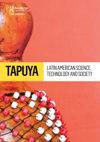过境点的死亡和失踪:事实化手段和真相叙述
IF 1.2
Q2 HISTORY & PHILOSOPHY OF SCIENCE
Tapuya: Latin American Science, Technology and Society
Pub Date : 2022-10-31
DOI:10.1080/25729861.2022.2111106
引用次数: 0
摘要
在本文中,我们分析了三种超越严格的医学法律领域的法医和反法医手段,以显示哪些具体做法和真相点有助于(重新)构建边境地区移民死亡和失踪的公共账户。根据书面文件和半结构化访谈,我们考察了红十字国际委员会(红十字国际委员会)在欧洲和非洲领导的行动、皮马县法医办公室(PCOME)与非政府组织Colibrí亚利桑那州人权中心合作开展的工作,以及法医海洋学(FO)对地中海中部移民沉船和军事化边境制度中嵌入的结构性暴力的开源调查。我们认为,这些实践构成了现实化手段,即将死亡和消失的生活经验转化为可以在公共领域作为反叙事的一部分可见和动员的客观现实的实践。我们展示了这些事实化实践是如何在评估实践中交织在一起的,即,这些实践不仅将认识论的价值,还将伦理、美学和政治价值归因于客观化的工作,这为真理叙事的生产提供了信息。本文章由计算机程序翻译,如有差异,请以英文原文为准。
Death and disappearance at border crossings: factualization devices and truth(s) accounts
ABSTRACT In this article, we analyze three forensic and counter-forensic devices that go beyond the strictly medico-legal realm to show which concrete practices and truth-spots contribute to (re)constructing a public account of migrant deaths and disappearances along border zones. Drawing on written documents and semi-structured interviews, we examine operations led by the International Committee of the Red Cross (ICRC) in Europe and Africa, the work of the Pima County Office of the Medical Examiner (PCOME) together with the NGO Colibrí Center for Human Rights in Arizona, and Forensic Oceanography's (FO) open-source investigations of shipwrecks of migrants in the Central Mediterranean Sea and the structural violence embedded in militarized border regimes. We argue that these practices constitute factualization devices, namely practices that transform lived experience of death and disappearance into an objectified reality that can be visibilized and mobilized in the public sphere as part of a counter-narrative. We demonstrate how these factualization practices are imbricated in valuation practices, i.e. practices that ascribe not only an epistemological but also an ethical, aesthetic and political value to the work of objectification, which inform the production of truth narratives.
求助全文
通过发布文献求助,成功后即可免费获取论文全文。
去求助
来源期刊

Tapuya: Latin American Science, Technology and Society
Social Sciences-Social Sciences (all)
CiteScore
1.60
自引率
0.00%
发文量
39
审稿时长
19 weeks
 求助内容:
求助内容: 应助结果提醒方式:
应助结果提醒方式:


